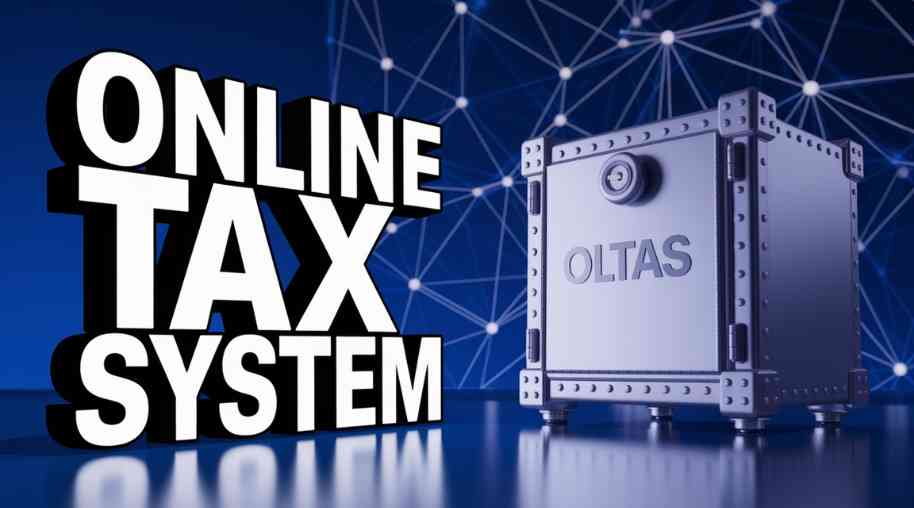OLTAS Full Form-Online Tax Accounting Systems
by Shashi Gaherwar
0 1016
Online Tax Accounting Systems: Benefits, Features, and Best Practices
Introduction
Managing taxes efficiently is essential for both businesses and individuals. With the rise of digital transformation, traditional tax filing methods are being replaced by online tax accounting systems. These systems automate tax calculations, ensure compliance, and streamline reporting, making tax management more accurate and less time-consuming.

In this article, we explore the importance of online tax accounting systems, their benefits, key features, and best practices for choosing and using these platforms effectively.
What is an Online Tax Accounting System?
An online tax accounting system is a software-based solution that helps businesses and individuals manage tax-related tasks such as tax filing, calculations, compliance, and reporting. These systems use cloud-based technology, automation, and AI-driven tools to simplify tax processes while reducing errors.
Businesses and taxpayers use online tax accounting systems for a variety of purposes, including income tax filing, GST/VAT compliance, corporate tax reporting, expense tracking and deductions, audit preparation, and gaining real-time financial insights.
Key Benefits of Online Tax Accounting Systems
Adopting an online tax accounting system offers multiple advantages:
1. Automation and Accuracy
These systems automate tax calculations and filing, reducing manual errors and ensuring compliance with the latest tax regulations.
2. Time Efficiency
Integration with accounting software saves hours of manual work, reduces paperwork, and speeds up tax return processing.
3. Cost Savings
They eliminate the need for costly consultants for standard filings and help prevent penalties through timely payments.
4. Real-Time Tax Insights
Real-time financial reports enhance tax planning and help track deductible expenses effectively.
5. Secure Cloud Storage
Cloud-based systems securely store financial records and eliminate the risk of document loss.
6. Multi-Tax Support
These platforms accommodate various tax structures such as GST, VAT, corporate tax, and personal income tax, and can be customized for different countries.
7. Seamless Integration
Integration with bank accounts, payroll, and invoicing software ensures data is automatically synced and up to date.
Key Features of an Online Tax Accounting System
A reliable system typically includes:
• Automated Tax Calculation for liabilities, deductions, and refunds.
• E-Filing and Compliance Management to electronically submit tax returns and verify compliance.
• Multi-User Access for collaboration among teams, accountants, and auditors.
• Tax Deduction & Credit Identification to optimize savings.
• Reporting & Analytics to generate tax summaries and audit trails.
• Secure Data Encryption to guard against cyber threats.
• Integration with Accounting Software like QuickBooks, Xero, or Zoho Books.
• Mobile Accessibility for tax management on the go.
How to Choose the Best Online Tax Accounting System
Selecting the right system depends on several considerations:
• Ease of Use: A user-friendly interface ensures smooth operation.
• Compliance with Tax Laws: It should support your local tax rules.
• Cost vs. Features: Weigh the pricing model against functionality.
• Customer Support: Look for 24/7 help and helpful onboarding.
• Integration Capabilities: Ensure compatibility with your existing tools.
• Security Measures: Features like encryption and multi-factor authentication are essential.
• Scalability: Make sure it can grow with your business needs.
Best Practices for Using Online Tax Accounting Systems
To make the most of your system:
• Keep your financial records updated regularly.
• Automate recurring transactions such as payroll taxes.
• Schedule your tax payments in advance to avoid penalties.
• Review tax reports monthly for insights and compliance.
• Enable multi-factor authentication for enhanced security.
• Regularly back up your data to secure cloud storage.
• Consult professionals for complex tax scenarios.
Popular Online Tax Accounting Systems
There are several well-regarded platforms tailored for different needs. QuickBooks Online is highly favored by small businesses and freelancers for its ease of use and broad feature set. Xero is another robust cloud-based solution ideal for small to mid-sized businesses that need integrated tax filing and financial tracking.
For individual taxpayers, TurboTax offers a streamlined experience focused on deductions and easy tax filing. Businesses dealing with GST or VAT will find Zoho Books especially useful, given its compliance features. FreshBooks is a great tool for startups and solo entrepreneurs who need simple invoicing and tax tracking. Lastly, Sage Business Cloud is geared towards larger enterprises requiring advanced compliance tools and detailed financial oversight.
Each platform offers unique capabilities, so the right one depends on your specific needs, business size, and tax requirements.
Online tax accounting systems have revolutionized how taxes are managed. With automated calculations, real-time reporting, and secure storage, they reduce errors and save valuable time. Choosing the right system tailored to your needs—and following best practices—can significantly improve tax compliance and financial efficiency.
Embracing a digital tax solution today can pave the way for more streamlined and successful financial management tomorrow.

Share:








Comments
Waiting for your comments